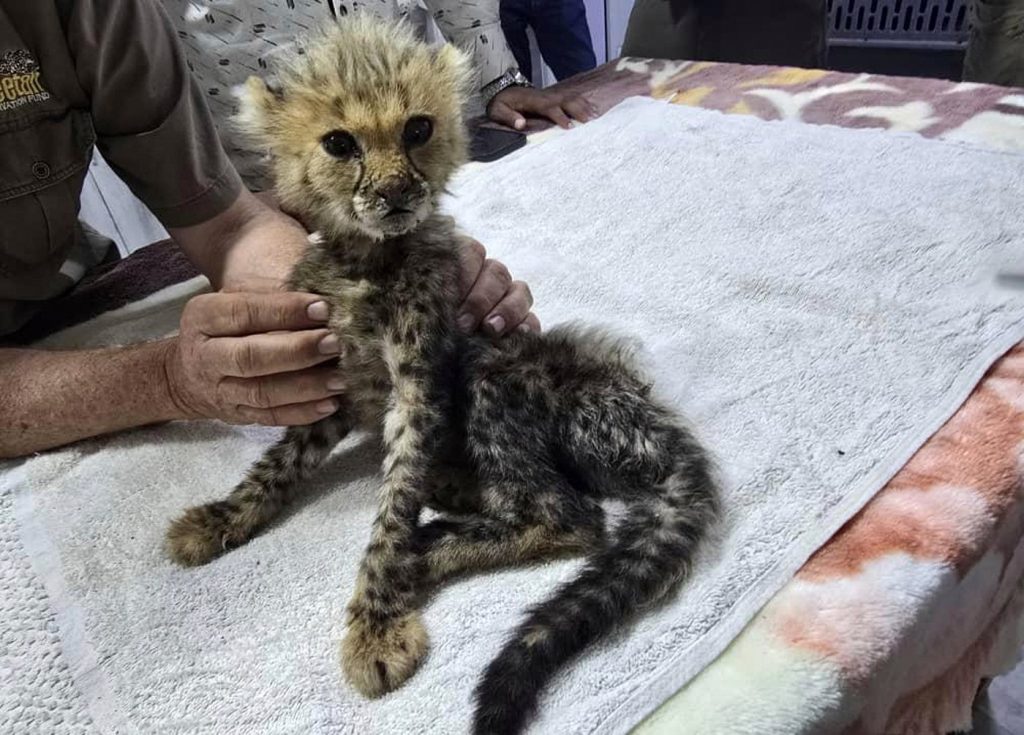NAIROBI, Kenya (AP) – Ten cheetah cubs have been rescued in Somaliland, a self-declared autonomous region of Somalia, after being held in captivity since birth and destined for illegal wildlife trade markets. The operation, which led to the rescue of these cubs, took place on August 14 in the northern Sallahley District, where two individuals were arrested for possessing the animals.
Laurie Marker, the founder of the Cheetah Conservation Fund (CCF), provided an update on the condition of the cubs, stating that they are currently stable. However, they have suffered from malnutrition and injuries due to being kept tied up for months. One particular cub, aged eight months, is unable to walk after being restrained for six months, while a five-month-old cub is described as “very malnourished (a bag of bones), with sores all over her body and full of botfly maggots which are under the skin.” Marker emphasized the importance of introducing food gradually to the cubs, as they may be at risk of refeeding syndrome, a condition similar to what humans experience after prolonged starvation.
In response to the operation and the ongoing illegal wildlife trade, Environment Ministry Director Abdinasir Hussein Said urged the public to report any suspected wildlife trading activities. He highlighted that Somaliland serves as a major transit hub for the illegal wildlife trade, with many cheetahs and leopards from the Horn of Africa being smuggled into Gulf countries via the Gulf of Aden. Currently, the cheetah cubs have joined a larger group of 109 others who have been rescued in similar operations.
The possession of wildlife is illegal in Somaliland, and authorities frequently conduct crackdowns on suspected wildlife traders. Hussein encouraged the local population to help protect wildlife in their natural habitats, emphasizing that the welfare of the animals is linked to their environments. He expressed concern for mother cheetahs who might experience stress and distress due to the separation from their cubs, urging for awareness and conservation efforts in preserving wildlife populations.
Conservationists from the Horn of Africa have raised alarms regarding the increasing demand for exotic pets in Gulf countries, stressing that this demand is fueling the illegal wildlife trade and adversely affecting local ecosystems. The situation has led to a call for greater outreach and education among the communities about the importance of wildlife conservation and the impact of illegal trading practices.
Thus, the rescue of the ten cheetah cubs highlights not only the tragic circumstances of their captivity but also the broader implications of wildlife trafficking in the region. The call for public involvement and protection efforts underlines the necessity for a collective approach to safeguarding wildlife for future generations.











